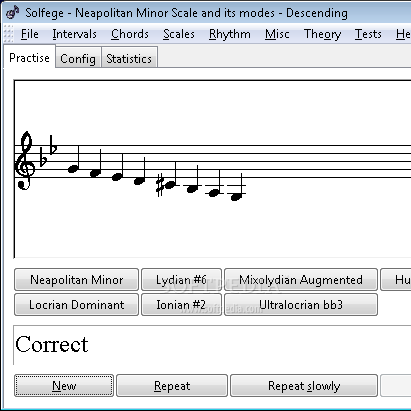Solfege is an open-source software for music education. You can use it to practice your listening skills for rhythm, chords, note scales and note intervals. It helps musicians, music/sound engineers and music enthusiasts to remember and recognize notes to let them play better.
Solfege is a great alternative for ear training and for conducting tests for ear training classes.
GNU Solfege utilizes Microsoft software synth, as well as other supported sound cards. It also supports software samplers which allows your computer to sound as real as possible – just like real instruments. LinuxSampler, Halion and Kontakt are some examples.
GNU Solfege is also available for a number of operating systems such as Windows, Mac OSX, Linux, Gentoo, Ubuntu, Debian, and Suse. It is written with GNOME and Phyton.
The software is also made to easily accommodate new exercises and new lesson files. And since it has a stable community, GNU Solfege is available in various language translations to reach out to a number of music students worldwide.
Features
- Recognise melodic and harmonic intervals
- Compare interval sizes
- Sing the intervals the computer asks for
- Identify chords
- Sing chords
- Scales
- Dictation
- Remembering rhythmic patterns
GNU Solfege is a good way to sharpen your listening skills, especially for musicians and those who need to train their hearing skills even further. It allows them to improve and develop their skills on their own – without having to pay for anything.
Related Links:
GNU Solfege Home Page
GNU Solfege on SourceForge

This work is licensed under a GNU General Public License.


